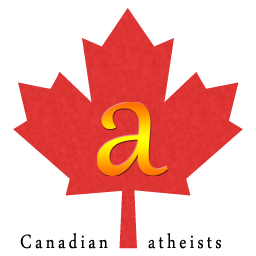
Frequently Answered Questions (FAQ)
- What is atheism?
- The word "atheism" represents an all-encompassing and tremendously diverse classification-demographic of individuals who share one specific trait -- the absence of belief in any deities (gods and goddesses).
- Additional perspective from our "Profile" page
- Definitions of "atheism" and "atheist", which includes references and describes etymology
- Do all atheists agree on the same things?
- No. Diversity is commonplace amidst opinions, preferences, attitudes, and thinking of atheists; the only characteristic that is shared by all atheists is the absence of belief in deities (everything else is incidental).
- Why do people become atheists?
- Every person is born as an atheist because they are born without a belief in any goddesses or gods, hence the reason for these people is that they "were born this way." For theists (people who believe in one or more goddesses or gods) who become atheists by ceasing to believe in goddesses and gods, their reasons are varied and are often unique based on their own ways of thinking, life experiences, opportunities, perspectives shared by others, etc.:
- Can the Canadian atheists help with immigrating to Canada?
- Since immigration and citizenship are not our specialities, we do not provide these services (such services are commonly provided by lawyers and immigration consultants who have the relevant expertise), but we may be able to get you in touch with professionals who can help. Please also see our "government resources" page for links to Canadian Government departments that can provide you with the necessary information about requirements and regulations relevant to relocating to Canada:
- Why does Canadian atheists not use a capital letter "A" in the word "atheists?" Is that a mistake?
- The letter "a" is not capitalized, intentionally (and we're also registered with the government with this specific capitalization).
Some of the reasons we emphasize "atheism" without capitalizing it are:
- to refer to atheists clearly as a demographic
- to express atheism in a non-ideological manner
- to more clearly tie atheism in with our efforts to normalize atheism
- Is atheism an organized hierarchy with a leader?
- No. Organized hierarchies with official leaders or other such representatives are not necessary for classifications, such as atheism. Consider the classification of "things that are mostly or entirely coloured red" -- setting up an organization to manage this or assigning someone to be its leader would be counterproductive due to the impossibility of having any impact on directing or changing the classification. So it follows that here at Canadian atheists our emphasis is that we are atheists, and not that we are managing or setting direction for what atheism is since it is a classification that stands on its own merit.
- Is Canada a Christian nation? (The Charter of Rights and Freedoms begins with "Whereas Canada is founded upon principles that recognize the supremacy of God and the rule of law.")
- No. That preamble is an introductory paragraph that notes a historic attitude when religion, particularly Christianity in various forms and denominations, used to be more prevalent and was held in high regard more widely by the Canadian population. Further to that, this historic preamble is not a numbered section, so it is not useful to interpret as an actual law, and it has no directly significant bearing on laws or culture (see Charter sections 2 and 15(1) for additional perspective).
Since a number of our laws are in conflict with certain key values of Christianity, any attempts to miscategorize Canada as a "Christian nation" do not accurately depict the freedom, diversity, and multicultural character of our national heritage or the diversity of our population.

